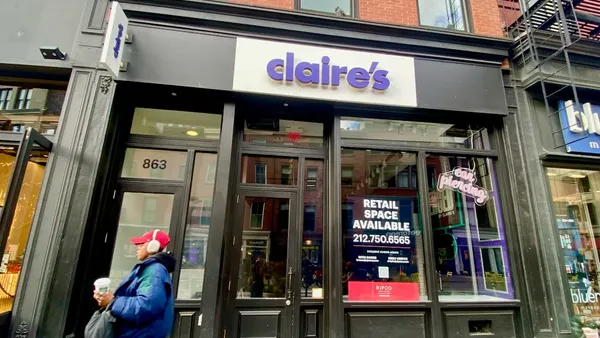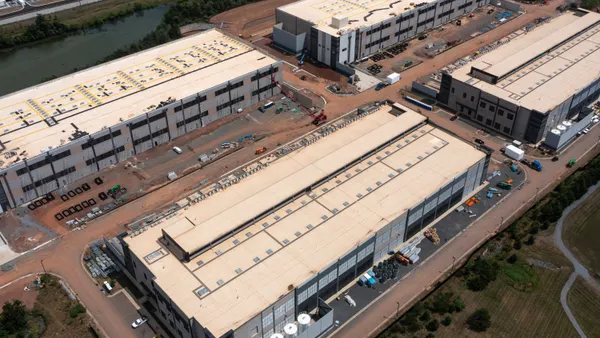Dive Brief:
-
Kroger announced the expansion of its cloud computing portfolio on the Google Cloud Platform Wednesday, adding to its existing contracts with Microsoft Azure and Pivotal. The company is also forming a "cloud enablement team," which will integrate Kroger Technology workers with outside specialists to manage cloud computing operations.
-
The largest grocery store chain in the country chose to stay away from the No. 1 cloud provider, AWS, for "obvious reasons competitively," said Chris Hjelm, CIO of Kroger, in an interview with CNBC. The tech giant recently upped its stake in the grocery market with the acquisition of Whole Foods and is attempting to break into the pharmacy market.
-
Kroger began splitting its cloud workload between Microsoft and Google at the end of 2016. Digital shelf technology, which includes sensors and smartphone interactions with customers, is based on Azure, while e-commerce, data initiatives and delivery is run through GCP. The company still keeps many core computing functions and storage in on-premise data centers, according to Hjelm.
Dive Insight:
Kroger's expansion of its cloud portfolio is not the grocery giant's first foray into modern tech applications. Along with Walmart and other food suppliers, it partnered with IBM on a blockchain initiative to improve data management and food supply chains in August.
Gaining the country's largest grocery chain is a boon to Google and Microsoft, the No. 3 and No. 2 cloud providers, respectively. AWS, however, need not worry.
As it increases its already strong hold on many retail-based industries and expands its reach into new ones, many companies besides Kroger are pushing back and looking elsewhere. Target began pulling out of the AWS cloud this fall, and Walmart has reportedly pressured its vendors to use alternative CSPs.
While it may seem like a game changer losing two retail giants, AWS dominates the IaaS market so profoundly that it doesn't have to worry. Its Q3 earnings demonstrated 42% year-over-year growth, and the company is likely to hit $18 billion in revenue this year.










